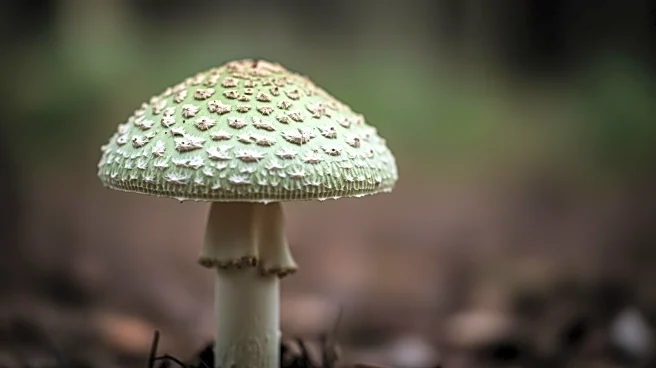What's Happening?
On World Menopause Day, experts have shared practical strategies to help women manage the physical and emotional changes associated with menopause. These strategies include recognizing and avoiding triggers,
using mindfulness practices, and engaging in Cognitive Behavioral Therapy (CBT) to address anxiety and mood swings. Additionally, movement and exercise, quality sleep, and brain-healthy foods are recommended to improve overall wellbeing. Experts emphasize the importance of social support and self-compassion during this transition, offering tools like portable mini fans and cooling bedding to alleviate symptoms such as hot flushes.
Why It's Important?
Menopause is a significant life stage affecting millions of women, with symptoms that can impact daily life and mental health. By providing evidence-based strategies, experts aim to empower women to navigate menopause with confidence and resilience. These tools can help reduce symptom severity, improve mood, and enhance quality of life. The emphasis on social support and self-compassion highlights the importance of community and personal growth during this transition, potentially reducing stigma and encouraging open discussions about menopause.
What's Next?
As awareness around menopause grows, more women may seek out these practical strategies and expert advice to manage their symptoms effectively. Healthcare providers and support groups are likely to play a crucial role in disseminating information and providing resources. The focus on holistic approaches, including nutrition and lifestyle changes, may lead to increased interest in personalized healthcare solutions for menopausal women.
Beyond the Headlines
The discussion around menopause is evolving, with a growing recognition of its impact on women's health and wellbeing. This shift may lead to broader societal changes, including improved workplace policies and healthcare practices that accommodate the needs of menopausal women. The emphasis on self-compassion and personal growth during menopause could also inspire cultural shifts in how aging and women's health are perceived.









